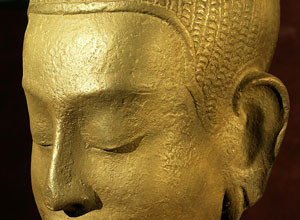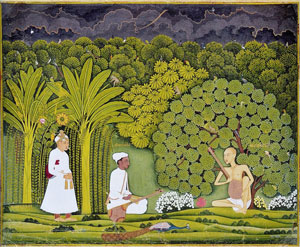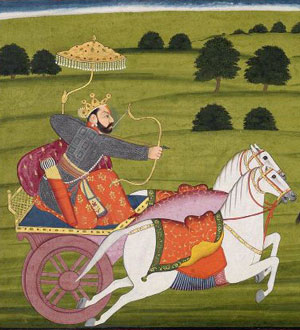
DIVING IN THE MOON
HONORING STORY, FACILITATING HEALING
Putting Down the Burning Coal:
Transforming Resentments Into Forgiveness Through Story
© Elisa Pearmain
 ‘Harboring resentment is like holding a burning coal that you wish to throw at your enemy, but instead you are the one who is burned.’ The Buddha
‘Harboring resentment is like holding a burning coal that you wish to throw at your enemy, but instead you are the one who is burned.’ The Buddha
There is a story about a woman who was popular at her job and everyone was sure that she would get a promotion. But another co-worker had an “in” with the boss and he received the higher position. The woman was hurt and angry. She continued to be angry long after the event had passed. She would give that co-worker dirty looks whenever he was in the room and refused to speak with him directly. Another co-worker asked. “You really felt burned by him didn’t you: Like he put your hand on a hot stove?” “Exactly!” the woman said. “Why do you keep putting your hand on the hot stove?” Her friend asked. “I don’t,” the woman answered,” “He put it there.” “Yes,” her friend said, “but that was months ago. It’s still getting burned. Only you can hold your hand to the stove now.”
The question of why we continue to harbor resentments when they cause us so much suffering has been of interest to me since I began my study of the forgiveness process over ten years ago. When clients come to me for psychotherapy I find that letting go of resentments towards others, and themselves is often the most challenging but rewarding aspect of our work.
The word resentment, means to revisit the pain of a wound over and over again. Research studies bear out that harboring a resentment is even more injurious to both physical and mental health than work related stress.
Anger, however is a necessary emotion. It spurs us to action when there is a problem. But too often we do not know what action to take and the anger and or hurt dig in and turn into resentment. As the late great poet Maya Angelou said, “Anger is like fire. It burns all clean. But resentments are like cancer. They eat up the host.”
In his books on Non-Violent Communication, the psychiatrist Marshall Rosenberg describes this stagnant anger as, “The tragic expression of unmet needs.” I have found this definition to be most helpful for healing resentments. In the story of the woman and the hot stove, her friend was trying to help her to take responsibility for her anger now that the event had passed. Being aware that we are prolonging our suffering is a first step. Making a conscious choice to begin the forgiveness process is close behind. The woman however would have to find other ways to take care of herself and her needs before she would be able to let go of the anger and move on.
Let me tell another story to look at the question of how unmet needs hold resentments in place. This is a story that the Buddha told to two of his followers who could not let go of a long standing hatred.
Prince Dhigavu
Once in India, the small kingdom of Kasi was ruled by a peaceful and wise king and queeni. Kasi had little wealth in its storehouses and no army. But its riches were in its fertile fields and the peaceful nature of its people. Next to the kingdom of Kasi lay much larger country named Kosala. King Bramadatta ruled over Kosala.
One day King Bramadatta decided to claim Kasi for his own, and sent his great army to defeat them. When the King and Queen of Kasi heard that Bramadatta’s soldiers were approaching, they decided to spare their people of bloodshed. They flew the white flags of surrender above the castle, and fled into exile. They came to Kosala in King Bramadatta’s own city of Beneres, and lived disguised as potters.
Soon after, the queen gave birth to a son, Prince Dhigavu, but King Bramadatta did not know of him. The Prince was raised well by his parents to know the history and values of Kasi, and to play the lute and sing with them.
King Bramadatta had no peace knowing that the King and Queen of Kasi were alive. When he finally offered a price for their heads, Dhigavu was sent to the country to be raised by friends. He visited his parents often. But when the Prince was sixteen someone recognized his parents in the marketplace and gave their whereabouts to King Bramhadatta.
The following day Dhigavu happened to be coming to visit his parents. He heard the sound of the drums calling people to the center of town. As he grew closer he saw that a crowd was gathering along the main street. He pushed through the crowd as a growing dread filled his stomach. And there to his horror he saw that indeed it was his parents, heads shaven, wrists and ankles in chain, being pushed, and dragged toward the execution yard.
He ran along the edge of the road frantic to find some way to save them. Seeing this, his father looked him straight in the eyes and motioned him away. As if speaking to no one in particular and looking straight ahead he said, “Darling, do not look long on this, for…” The Prince heard all of his father’s words that day, but as he watched his parent’s heads roll, the words were drowned out by grief and anger.
Dhigavu ran into the forest and wept. King Bramadatta had ordered that no one be allowed to perform funeral rights for his parents. But that evening he pulled himself together enough to buy some strong wine. He gave it to the guards who drank it and fell asleep or wandered away. He built the pier, lit the fire and walked three times around it reciting the funeral prayers. He fled into the forest. Later he learned that the King had been watching from his balcony that night and knew that someone still lived who was loyal to his parents.
Within a few days of the execution Dhigavu forced the grief away and focused on a plan to avenge his parent’s deaths. He would make King Bramadatta feel what they must have felt  as they were dragged to their deaths and as the swords fell upon them. He made himself a vow that he would show him his power and take the King’s away forever. He vowed that he would do his duty for his parents and the people of Kasi. Then and only then would he know peace.
as they were dragged to their deaths and as the swords fell upon them. He made himself a vow that he would show him his power and take the King’s away forever. He vowed that he would do his duty for his parents and the people of Kasi. Then and only then would he know peace.
His plan worked well. He soon had an apprenticeship at the palace as anunknown stable boy. He worked hard all day and played his lute in the evenings. He watched as the King paced his balcony late at night, and discovered that despite all of his power he knew no peace. Bramadatta loved Dhigavu’s music and soon ordered that he be brought inside the castle to play for him. After a few more months he was brought to live inside the castle to play for him whenever he desired. It seemed that Dhigavu alone soothed him. But, for his part, he kept the flames of hatred burning in his heart. He felt no grief, for his anger and hatred were so strong.
During that time Dhigavu had a reoccurring dream in which he was watching those last few moments in his parents’ lives. His fathers’ eyes motioning him away, and his words, “Do not look long on this, for…,” and the rest drowned out by the drums.
Within the year Dhigavu had won the King’s confidence and had become his personal servant, staying close to him night and day.  He waited patiently for many months for an opportunity to complete his plan. One day in the dry season, the King and his advisors were going out on the hunt. Dhigavu would be the King’s chariot driver. They drove out with the hunting party into the forest. Dhigavu let their chariot lag somewhat behind and spoke to the King. “Your highness, I suggest we take a different route where it will be quieter and better for hunting. May I show you?” “Good idea man,” said the King. The day was hot. They drove to a clearing in the forest where the king asked to get down and take a rest under the shade of a tree. Dhigavu offered him his lap to rest his head upon. Soon King Bramadatta was fast asleep.
He waited patiently for many months for an opportunity to complete his plan. One day in the dry season, the King and his advisors were going out on the hunt. Dhigavu would be the King’s chariot driver. They drove out with the hunting party into the forest. Dhigavu let their chariot lag somewhat behind and spoke to the King. “Your highness, I suggest we take a different route where it will be quieter and better for hunting. May I show you?” “Good idea man,” said the King. The day was hot. They drove to a clearing in the forest where the king asked to get down and take a rest under the shade of a tree. Dhigavu offered him his lap to rest his head upon. Soon King Bramadatta was fast asleep.
The moment Dhigavu had been planning for had arrived. His heart began to beat like those drums. He pulled his hunting knife from its sheath. He placed its tip a hair’s width from the King’s neck. “Now you will suffer as my parents did”, he whispered. But he faltered in this final moment. He was no murderer. He tried to summon all of my hatred. He intentionally conjured the image of his parents being marched to their deaths. The images came easily, but now so did his father’s forgotten words. “Do not look long upon this, for hatred is not ended through more hatred. Hatred is only ended through love.”
Dhigavu pulled the knife back and re-sheathed it. How could he go against his father’s last words? He wanted to push them away. Love? He felt love for my parents, but for this king never! He felt like weeping. This was what he had been living for. He deserved this. His parents deserved this. He pulled the knife out again and held it a millimeter from the King’s jugular. Again the image of his parents came to him and though he wished there were guards to push those words away, he heard them clearly. Again he re-sheathed the knife. Now the tears were welling up in his eyes as he remembered the love of my parents. The argument in his head was as loud as the shouting crowd. “I need this. I need revenge.” He raised the knife once more. But again came the words. ´Hatred is never ended through more hatred. Hatred is ended only through love.”
At last he understood. He pictured what would happen next. He would kill the king and then would flee into the forest. But it would not be over. There would be revenge, against him, and the people of Kasi. The violence would not stop. He would never be at peace. He would be as anxious as this man who lay in his lap. But what of love? He could not conceive of loving him. But the love his parents had showed for their people filled his memory. They had given up their thrown to save their people from bloodshed. Tears were streaming down his face.
He resheathed the knife and wiped the tears away. At that moment the king awoke startled. “I just had a nightmare: One that I have had many times, but it seemed so real now. In my dream, the king and queen of Kasi had a son, a Prince Dhigavu. He sought revenge and had a knife and meant to kill me.”
“It was no dream Bramadatta.” Dhigavu said, pulling out the knife. “I am Prince Dhigavu, and until just now I had planned to kill you. “Spare me”, the King begged trying to get up. The prince pushed him down. “Hear me out,” he said, “For I am still not sure that I will let you live.” He told him about the words of his father. “What I do not understand is how they could ever expect me to turn this hatred into love?”
“Your father was a wiser man than I.” Said the King, “For I have had no peace since I ordered your parent’s executions. You have given me the only peace I have known. It is you that I have trusted above all else. You may never love me, but I have loved you. Please spare me. I am sorry to have caused you such pain.”
“Would you promise to spare my life?” Dhigavu asked, “and to return me to the throne of Kasi?” “Yes,” pleaded the King. “We will rule our countries side by side in peace.”
That day was the last day that hatred burned in Dhigavu’s heart. It was replaced by the great sadness that he had been unable to feel while thoughts of revenge burned inside him. But in time that grief too was replaced by the joy and love of his people. For they once again had a kind ruler who desired peace above all, and who might one day grow into the wisdom of his father.
What needs was Prince Dhigavu trying to meet by planning the murder of the King? Here are some possibilities:
- The need to feel safe. We often hold anger as a wall of protection when we are afraid that we will be hurt again, or hurt too.
- The need to feel power and control. Dhigavu had been powerless to save his parents. When we feel powerless we look for ways to have some control, such as a revenge fantasy or ruminations of hatred.
- He needed to feel positive self-worth. Powerlessness and wounding often produce feelings of shame and worthlessness. What does it say about us this could happen to us, or to people that we love. Anger feels more powerful than shame.
- He needed self-respect. To prove that he was capable of defending the honor of those he loved. Revenge can be a way of saving face, or proving that we are in the right.
- He needed acknowledgement of the pain: To make the King feel what he and his parents had felt. We all need to be heard and to have our feelings acknowledged.
- The need for justice. This wrong could not go unpunished or unacknowledged.
- The need to believe that he could undo what had happened by getting revenge. (A kind of denial through magical thinking).
- And the need to feel connected to his parents. As long as he was focused on revenge he was doing something for them, and did not have to accept that they were gone forever.
- The need to avoid feeling his own grief. Anger often masks the more painful feelings of sadness, loneliness and fear.
Returning to the story of the resentful worker, what needs was she trying to meet by staying angry? Like the Prince, she was trying to take care of herself, in ways that were not working. She felt betrayed by her co-worker and undoubtedly her boss. She felt unseen, small, unrecognized, disrespected. Deep down she may have been blaming herself, and running a commentary of what she should have done differently. She was trying to exact justice by continually punishing this co-worker, but she was the one who was suffering.
Here are some story oriented steps to help yourself and your clients to heal old wounds and move on.
- Doing whatever we can to feel safe. People will ruminate on revenge fantasies towards those who have hurt them until they can set up sufficient boundaries and protections.
- Allowing for the grief of what was lost. This requires telling our story deeply and receiving support. In the process we cultivate compassion for ourselves which is necessary to feels safe enough to allow our feelings to move through us.
- Cultivating empathy for ourselves. Telling ourselves a more accurate story of why we made the decisions that we did can help us to see that we were doing our best at the time. It can help us to forgive ourselves for being victimized, and for anything we think we did wrong. Stepping back into the shoes of who were and experiencing what we needed at the time is crucial. Twenty-twenty hindsight is not useful and is often cruel.
For instance, I had a client once whose former husband had pressured her into having an abortion shortly before he left her. She harbored ongoing anger toward herself because she felt that she needed to be punished, and that if she forgave herself she might do it again. She had kept her grief buried because it felt too big. These ways of telling the story had kept her from filing for the divorce, or grieving the loss even though many years had passed. By stepping back into the shoes of who she was when she was pregnant and stuck in a bad marriage, she learned to love that scared young woman who had made that decision. Once she had forgiven herself she could start to tell a new forward-thinking story. She filed for divorce and once it was complete soon found a healthy partner, with hopes of marriage and motherhood to follow.
- Cultivating empathy for the one who has stimulated our pain. Telling the story standing honestly in their shoes (from their point of view) helps us to understand the needs they were trying to meet that allowed them to hurt another human being. Henry Wadsworth Longfellow said that, “if we could read the secret history of our enemies we would find sorrow and suffering enough to dissolve all hostility.” This helps us to take the wound less personally. The wounding experience was not a reflection of our weakness, but someone else’s need. I often tell my clients the Sufi story of the Dervish in the Ditch to demonstrate this shift in perspective.
- Acceptance of what is. By letting go and accepting that our losses have happened and we can’t change that, we can move forward to creating something new. Perhaps the best story of this is the Buddha’s story of the Mustard Seed.
- Telling a new story in which we envision ourselves getting our needs met, and living our values in the future. In the end Dhigavu was able to shift from a focus on what he had lost, to getting his needs met going forward. He needed the love of a community, and to live up to the value of being a good ruler. He was finally able to tell a new story about himself.
- A final story which often comes later, is one in which we acknowledge how we have grown from this wounding experience.
The woman from our first story would be able to move on when she had grieved what she had lost, had forgiven herself, and begun taking the experience less personally. Then she could start  to focus on getting those lost needs met. She could think about her career goals, get more training, speak more assertively to her boss, or find a more supportive workplace.
to focus on getting those lost needs met. She could think about her career goals, get more training, speak more assertively to her boss, or find a more supportive workplace.
Forgiveness is for ourselves first, but the whole world will benefit. I imagine that the Buddha would have followed his statement with something like this: Put down the burning coal my dear, and pick up your own tender heart.
Resources
Health Benefits of Forgiveness – Multiple sources including: Forgive For Good: A proven prescription for Health and Happiness by Fred Luskin, HarperCollins (2002).
Non-Violent Communication: A Language for Life by Marshall Rosenberg, Independent Publishers Group (2003)
Sources for Prince Dhigavu story include: My CD Forgiveness: Telling our Stories in New Ways. Elisa Pearmain (2013). See “Brahmadatta, Dighiti and Digihavu” in Buddhist Parables translated from Pali by Eugene Watson Burlingame, (Yale University Press, 1922).
The ”Dervish in the Ditch” story can be found in Elisa’s book Doorways to the Soul: 52 Wisdom Tales from around the World Pilgrim Press (1998) and her CD as above. It can also be found on Doug Lipman’s Milk from the Bull’s Horn: Tales of Nurturing Men (Cambridge: Yellow Moon Press, 1986.)
The “Mustard Seed” story can be found on Elisa’s CD or in her book, Doorways to the Soul, and many others printed sources.
Painted illustrations include:
Akbar and Tansen visit Swami Haridas in Vrindavan, circa 1750 by unknown painter in Rajasthani miniature style.
Detail from Prithu chases the goddess earth, illustrated manuscript of Bhagavata Purana Indian Pahari 1740 Attributed to Manaku.

 Elisa Pearmain, M.A., M.Ed, LMHC, has been telling stories professionally and leading healing story groups for over 30 years. She recently recorded the double CD Forgiveness: Telling our Stories in New Ways which won a 2015 Storytelling World Award for best recorded stories! She is the author of two award-winning books including Doorways to the Soul: 52 Wisdom Tales from around the World (1998), and Once Upon a Time: Storytelling to Teach Character and Prevent Bullying (2006). Elisa is a licensed mental health counselor with a private practice in Concord, MA.
Elisa Pearmain, M.A., M.Ed, LMHC, has been telling stories professionally and leading healing story groups for over 30 years. She recently recorded the double CD Forgiveness: Telling our Stories in New Ways which won a 2015 Storytelling World Award for best recorded stories! She is the author of two award-winning books including Doorways to the Soul: 52 Wisdom Tales from around the World (1998), and Once Upon a Time: Storytelling to Teach Character and Prevent Bullying (2006). Elisa is a licensed mental health counselor with a private practice in Concord, MA.
